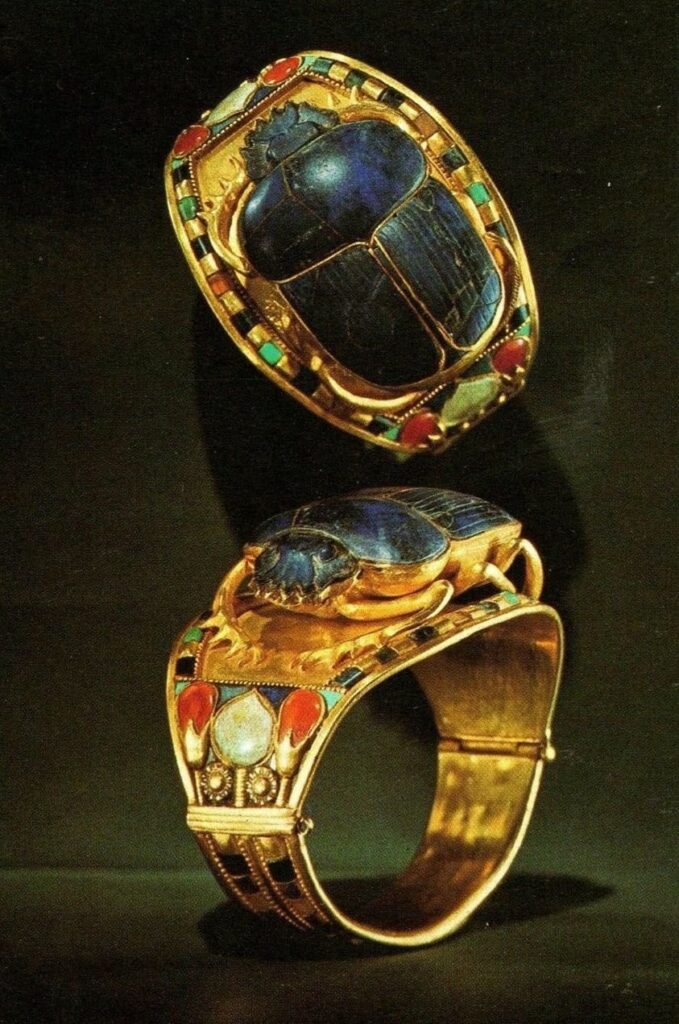The ancient Egyptian civilization was renowned for its breathtaking works of art and exquisite craftsmanship. Among the most captivating treasures to emerge from this storied past is the magnificent scarab bracelet of King Tutankhamun. This stunning piece of jewelry not only showcases the technical mastery of ancient Egyptian artisans, but also serves as a window into the rich symbolism and beliefs that permeated their culture.
The Masterful Craftsmanship of Tutankhamun’s Scarab Bracelet
The scarab bracelet of Tutankhamun is a true testament to the skill and artistry of ancient Egyptian goldsmiths. Composed of rigid, intricately detailed gold, the bracelet is formed by two semicircles joined together by a hinge on one side and a clasp on the other. At the center of this magnificent piece lies a cloisonné scarab, inlaid with the deep blue hues of lapis lazuli.
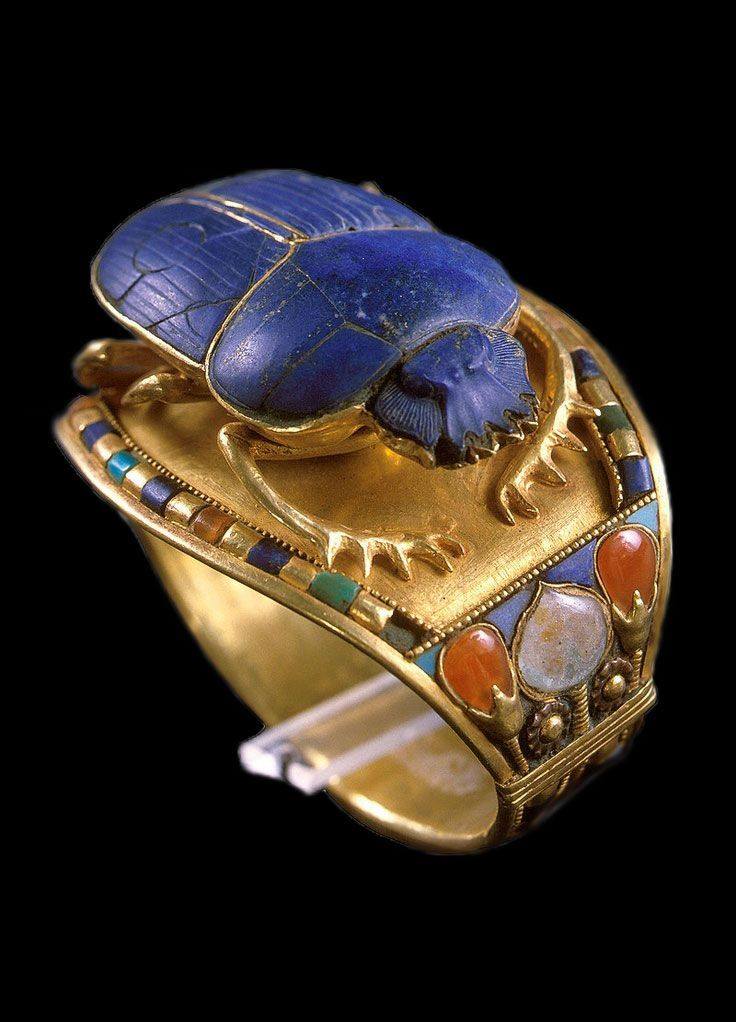
The attention to detail and precision in the craftsmanship of this bracelet is truly breathtaking. The small circumference of the piece suggests that it was made specifically for King Tutankhamun when he was a child, further highlighting the meticulous care and craftsmanship that went into its creation. Beyond the central scarab, the bracelet is also adorned with other precious materials, including carnelian and colored glass, adding to its visual splendor.
The Significance of the Scarab in Ancient Egyptian Culture
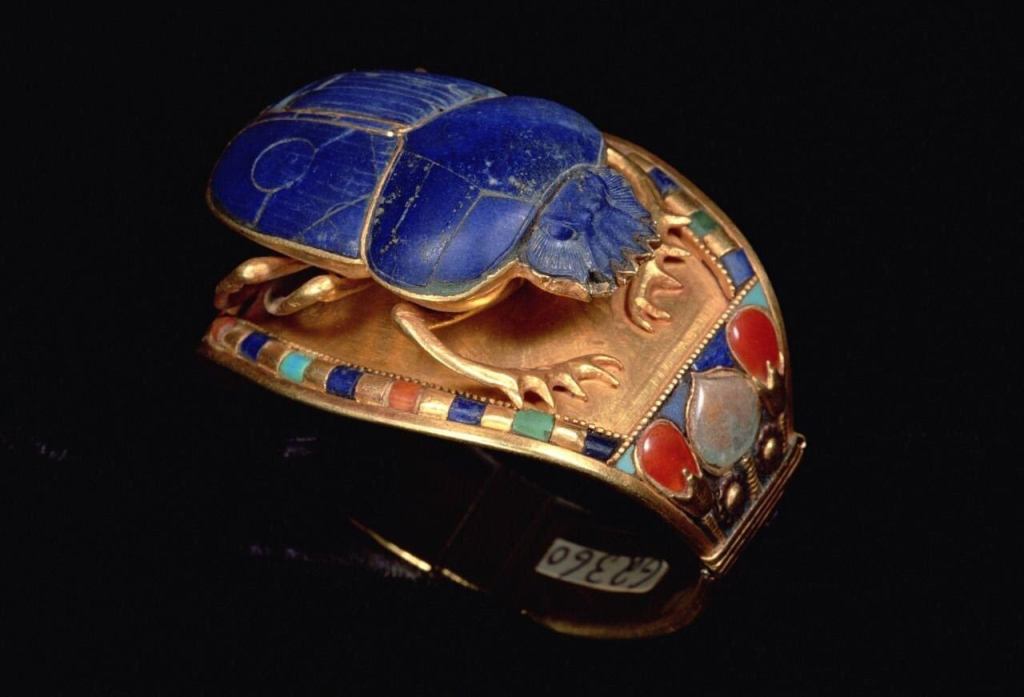
The scarab beetle was a highly revered symbol in ancient Egyptian culture, representing a multitude of important beliefs and concepts. As a symbol of the morning sun, the scarab was associated with the sun god Ra and the cycle of rebirth and renewal. The ancient Egyptians believed that the scarab beetle’s habit of rolling a ball of dung across the ground mirrored the daily journey of the sun across the sky, further reinforcing its connection to the solar deity.
In addition to its solar associations, the scarab was also viewed as a symbol of protection and good luck. The ancient Egyptians believed that the scarab beetle had the power to ward off evil spirits and bring good fortune to those who wore it. This belief was deeply rooted in the scarab’s ability to emerge from the ground, seemingly reborn, which was seen as a metaphor for the cycle of life, death, and resurrection.
The Scarab Bracelet as a Reflection of Tutankhamun’s Beliefs and Status
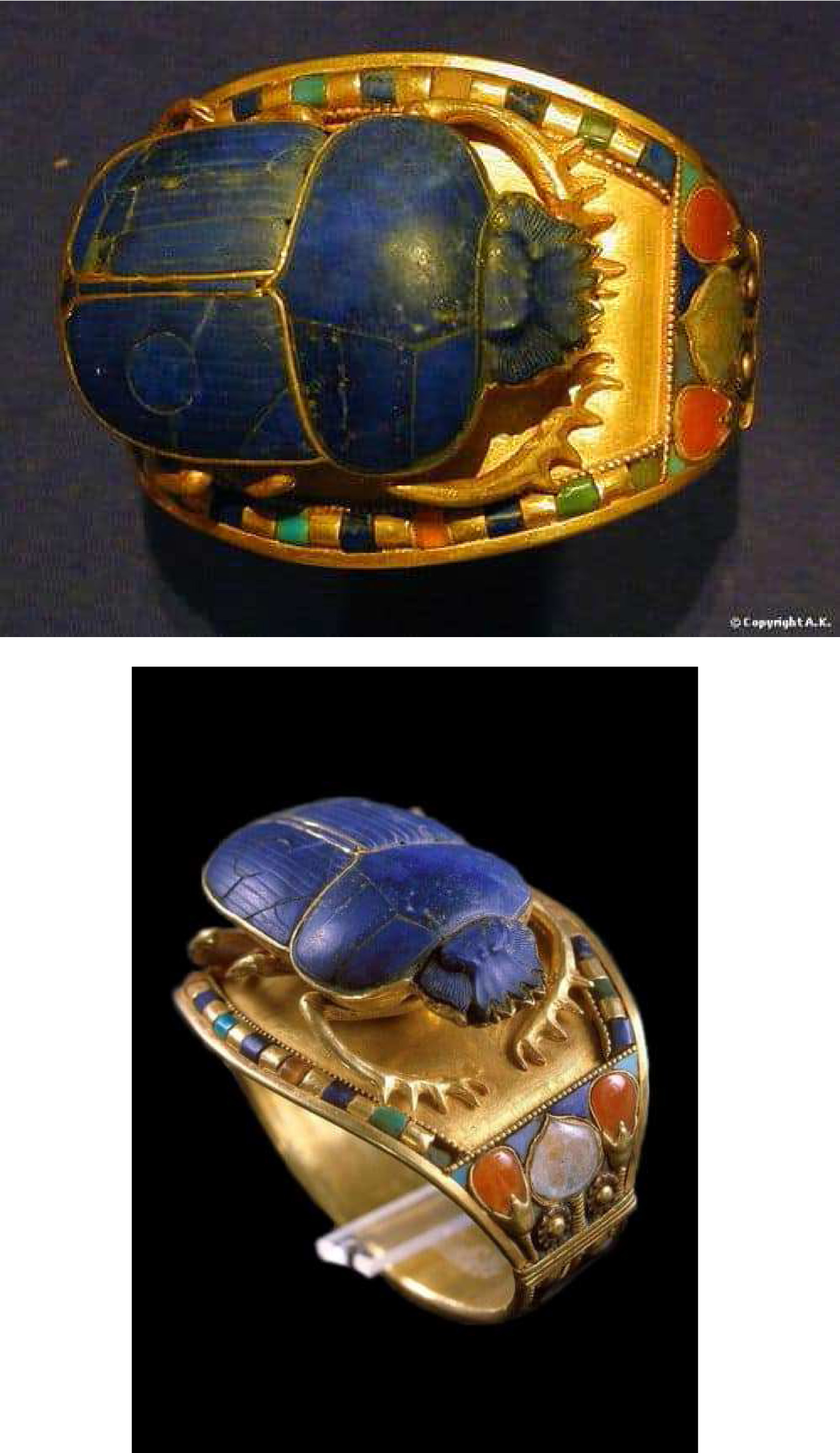
The inclusion of the scarab motif in Tutankhamun’s personal jewelry is a testament to the deep cultural and spiritual significance of this symbol. As a young pharaoh, Tutankhamun would have been acutely aware of the power and symbolism associated with the scarab, and the placement of this motif on his bracelet was likely a deliberate choice to tap into the protective and regenerative properties that the scarab was believed to possess.
Furthermore, the use of precious materials such as gold, lapis lazuli, and carnelian in the construction of this bracelet speaks to Tutankhamun’s status and wealth as a ruling monarch. The fact that this bracelet was found among the young king’s personal possessions in his tomb suggests that it held great personal and symbolic significance for him, serving as a tangible representation of his power, beliefs, and the divine right to rule.
The Enduring Legacy of Tutankhamun’s Scarab Bracelet
The discovery of Tutankhamun’s scarab bracelet in his tomb in 1922 was a watershed moment in the study of ancient Egyptian art and culture. This stunning piece of jewelry not only captivated the world with its breathtaking craftsmanship, but also provided invaluable insights into the religious, cultural, and social beliefs of the ancient Egyptians.
Today, the scarab bracelet of Tutankhamun remains one of the most iconic and recognizable artifacts from the ancient Egyptian world. It continues to inspire awe and wonder, serving as a testament to the enduring legacy of this remarkable civilization and the enduring power of its symbols and beliefs.
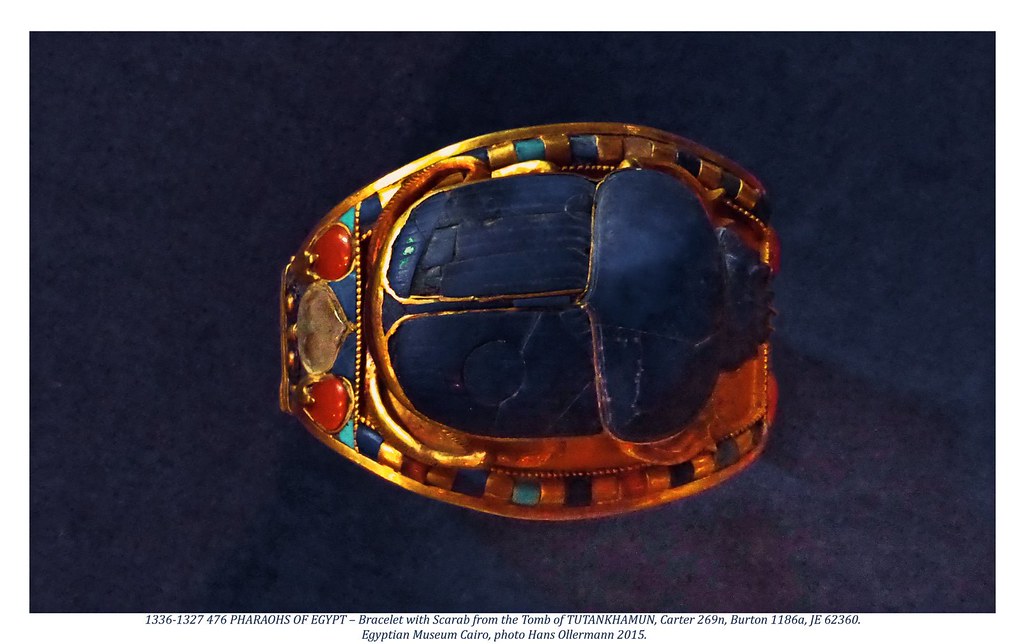
Appreciating the Timeless Beauty and Significance
The scarab bracelet of Tutankhamun is a true masterpiece of ancient Egyptian art and design. Its exquisite craftsmanship, combined with the deep symbolic significance of the scarab motif, make it a truly captivating and multifaceted work of art. As we continue to study and appreciate this remarkable artifact, we gain a deeper understanding of the beliefs, values, and cultural traditions that shaped the ancient Egyptian world.
Whether you are a scholar, an art enthusiast, or simply someone fascinated by the mysteries of the past, the scarab bracelet of Tutankhamun is a treasure that is sure to captivate and inspire. Its enduring legacy serves as a testament to the enduring power of ancient Egyptian art and the timeless human desire to create works of beauty and meaning.
